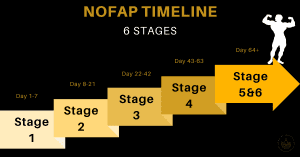Masturbation is a common topic that everyone seems to shy away from. It’s a topic that’s often surrounded by myths, taboos, and confusion. But the truth is, almost everyone does it, and it’s nothing to be ashamed of. However, for some people, masturbation can become a habit that’s hard to break. If you’re one of those people, you’re not alone. It’s a common problem that affects many individuals. But don’t worry, breaking the habit is possible, and in this article, we’ll explore why you can’t stop masturbating and what you can do about it. So, if you’re ready to learn how to overcome this habit and take control of your life, keep reading.
Breaking the Habit: Why Can’t I Stop Masturbating and What You Can Do About It
The Compulsion to Masturbate
Masturbation is a natural and healthy part of human sexuality. However, for some people, it can become a compulsion that interferes with their daily lives. This is particularly true for those who struggle with addiction or compulsive behavior.
The urge to masturbate can be overwhelming, and it can be difficult to resist. Some people may feel ashamed or guilty about their behavior, which can make it even harder to stop.
The Reasons Behind the Behavior
There are a number of reasons why someone may struggle with compulsive masturbation. For some, it may be a coping mechanism for dealing with stress or anxiety. For others, it may be a way to deal with feelings of loneliness or boredom.
In some cases, compulsive masturbation can be a symptom of an underlying mental health condition, such as depression or anxiety. It can also be a side effect of certain medications.
The Effects of Compulsive Masturbation
Compulsive masturbation can have a number of negative effects on a person’s life. It can interfere with their relationships, work, and social life. It can also lead to feelings of guilt, shame, and low self-esteem.
In some cases, compulsive masturbation can lead to physical problems, such as erectile dysfunction or premature ejaculation.
How to Break the Habit
Breaking the habit of compulsive masturbation can be challenging, but it is possible. The first step is to acknowledge that you have a problem and to seek help.
There are a number of resources available for those who struggle with compulsive behavior, including support groups and therapy. It is important to find a therapist who specializes in treating addiction or compulsive behavior.
In addition to seeking professional help, there are a number of things you can do to break the habit of compulsive masturbation. These include:
– Identifying triggers: Keep track of when and where you are most likely to masturbate. This can help you identify patterns and triggers that lead to the behavior.
– Finding healthy alternatives: Instead of masturbating, find other ways to cope with stress or boredom. This could include exercise, meditation, or spending time with friends and family.
– Setting boundaries: Set clear boundaries for yourself around masturbation. This could include limiting the frequency or duration of the behavior.
– Practicing self-care: Take care of yourself by getting enough sleep, eating a healthy diet, and engaging in activities that bring you joy.
The Importance of Self-Compassion
Breaking the habit of compulsive masturbation can be a long and difficult process. It is important to practice self-compassion and to be patient with yourself.
Remember that change takes time, and it is okay to make mistakes along the way. The most important thing is to keep moving forward and to never give up on yourself.
Conclusion
Compulsive masturbation can be a challenging and isolating experience. However, with the right support and resources, it is possible to break the habit and reclaim your life.
Remember that you are not alone, and that there is no shame in seeking help. Take the first step today towards a healthier and happier life.
The Role of Pornography
Pornography can be a major trigger for compulsive masturbation. It can be difficult to resist the urge to masturbate when exposed to explicit images or videos. It is important to limit or avoid exposure to pornography if you are struggling with compulsive masturbation.
The Benefits of Therapy
Therapy can be incredibly helpful for those struggling with compulsive behavior, including compulsive masturbation. A therapist can help you understand the underlying causes of your behavior and develop strategies for breaking the habit.
Therapy can also provide a safe and supportive environment for exploring difficult emotions and experiences. It can help you build self-esteem and develop a greater sense of self-awareness.
The Role of Self-Reflection
Self-reflection is an important part of breaking the habit of compulsive masturbation. Take some time to reflect on your behavior and identify any patterns or triggers. Consider keeping a journal to track your progress and identify areas for improvement.
It is also important to practice self-compassion and forgiveness. Remember that breaking the habit takes time and effort, and it is okay to make mistakes along the way.
The Importance of a Support System
Having a supportive network of friends and family can be incredibly helpful when breaking the habit of compulsive masturbation. Reach out to loved ones for emotional support and encouragement.
Consider joining a support group for individuals struggling with addiction or compulsive behavior. These groups can provide a safe and supportive environment for sharing experiences and learning from others.
The Role of Self-Care
Self-care is an important part of breaking the habit of compulsive masturbation. Take care of yourself by getting enough sleep, eating a healthy diet, and engaging in activities that bring you joy.
Exercise can be particularly helpful for reducing stress and anxiety. Consider incorporating regular physical activity into your routine, such as going for a walk or practicing yoga.
The Benefits of Mindfulness
Mindfulness can be a powerful tool for breaking the habit of compulsive masturbation. Mindfulness involves being present in the moment and observing your thoughts and feelings without judgment.
Practice mindfulness by taking a few minutes each day to focus on your breath and observe your thoughts and emotions. This can help you develop greater self-awareness and reduce the urge to engage in compulsive behavior.
The Role of Medication
In some cases, medication may be helpful for breaking the habit of compulsive masturbation. Talk to your doctor or a mental health professional about whether medication may be appropriate for you.
Medication can help reduce anxiety and depression, which can be major triggers for compulsive behavior. However, it is important to remember that medication is not a cure-all and should be used in conjunction with other forms of treatment, such as therapy and self-care.
Final Thoughts
Breaking the habit of compulsive masturbation can be a challenging and difficult process. However, with the right support and resources, it is possible to overcome this behavior and reclaim your life.
Remember that change takes time and effort, and it is okay to make mistakes along the way. Be patient and kind to yourself, and never give up on the journey towards a healthier and happier life.
Frequently Asked Questions
Why is it So Hard to Stop Masturbating?
It’s common for people to struggle with stopping masturbation because it’s a natural and normal behavior. Masturbation is a way for individuals to explore their bodies and experience pleasure. However, when it becomes excessive or interferes with daily life, it can become a problem. Masturbation can also be used as a coping mechanism for stress, anxiety, or depression, making it difficult to stop.
What Can I Do to Stop Masturbating?
There are several things you can do to stop masturbating, such as finding a healthy outlet for stress or anxiety, avoiding triggers, and seeking support from a therapist or support group. Finding a hobby or activity that you enjoy can also help distract you from the urge to masturbate. It’s important to be patient with yourself and remember that breaking a habit takes time and effort.
Is Masturbation Harmful?
Masturbation is not harmful in moderation. It is a normal and healthy behavior that can provide pleasure and release tension. However, excessive masturbation can lead to physical and emotional problems, such as fatigue, erectile dysfunction, and shame or guilt. It’s important to find a balance and engage in masturbation in a healthy and responsible way.
What Should I Do if I Can’t Stop Masturbating?
If you are having difficulty stopping masturbation, it’s important to seek help from a medical professional or therapist. They can provide support and guidance to help you break the habit and address any underlying issues that may be contributing to the behavior. It’s important to remember that you are not alone, and there is no shame in seeking help.
Key Takeaways
- Masturbation is a natural and normal behavior but can become a problem when it interferes with daily life.
- Healthy coping mechanisms and distractions can help break the habit of excessive masturbation.
- Masturbation is not harmful in moderation but can lead to physical and emotional problems when excessive.
- Seeking help from a medical professional or therapist is important if you are having difficulty stopping masturbation.
Conclusion
Breaking the habit of excessive masturbation can be challenging, but it’s important to remember that it’s a natural behavior and there is no shame in seeking help. Finding healthy coping mechanisms, avoiding triggers, and seeking support from a therapist or support group can all be helpful in breaking the habit. Remember to be patient with yourself and take it one day at a time.





